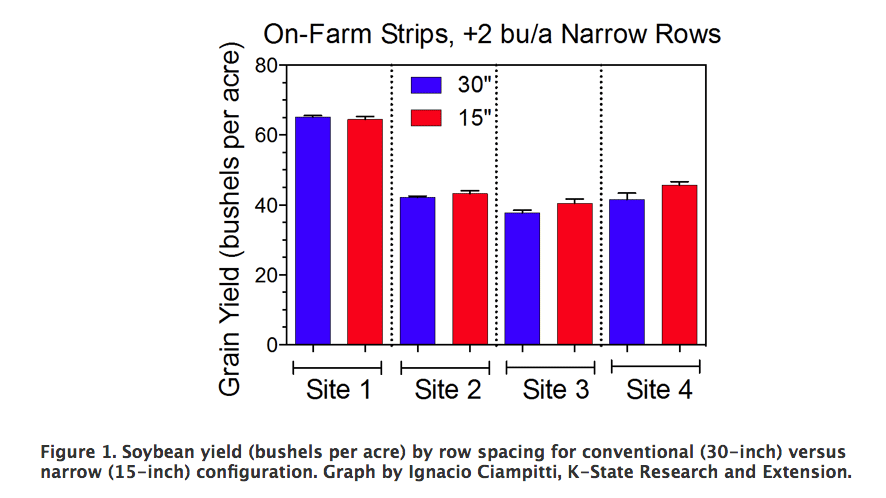There are still many questions about row spacing for soybean production. Research from K-State has found that narrow rows (15-inch or 7.5-inch) result in equal or greater yields compared to 30-inch rows when the yield environment is greater than 45-50 bushels per acre (regardless of planting date, seeding rate, or maturity). Below this yield threshold level, narrow rows tend to result in yields about equal to or slightly below (depending on the growing conditions, water status) yields in 30-inch row spacing. Narrow rows have several benefits such as early canopy cover, better light capture, improved weed control, and reduced erosion. Poor stands, however, are more common with narrow row spacing versus wider row spacing.
For the 2015-16 seasons, on-farm studies (collaboration between K-State, Kansas Soybeans, and the United Soybean Board - USB) showed slight yield improvement (+2 bushels per acre) on narrow rows (15-inch; Figure 1) with yields averaging 48 bushels per acre.
Overall Summary

For the 2017 season, two studies (collaboration between K-State, Kansas Soybeans, North Central Soybean Research Program) were conducted comparing 15 inch vs. 30 inch rows. The first study was located in Franklin County, Kansas and the second one was located in Riley County, Kansas
Overall, narrow rows provided a yield response ranging from -0.6 to +5.0 bu/acre. An additional benefit for narrow rows was enhanced early light interception and improved weed control.
For more information visit: http://www.iasoybeans.com/USB/DataViewer/index.htm





